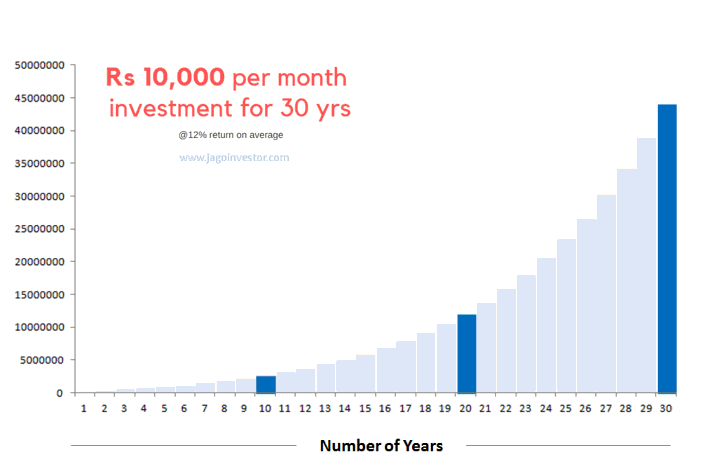“I created 1.5 crores in last 7 yrs” – here is an Inspiring Money Story !
This time we are going to share money story of another reader of ours (Name not disclosed as per request). This person is from Bangalore, belonging to the middle class and is now working in the US from the last 2.5 years. He is a regular reader of this blog and agreed to share his money story with a bigger audience.

Over to him…
When I was Growing Up
Born and Bought up in Bangalore, I have spent ~30 years of my life in Bangalore and 4 outside of India. Yes, I have seen Bangalore go from a quaint friendly place where I could cycle 20 km in 30 odd mins through peak traffic, be out any time of the night, ask strangers for help to the current madness on the streets.
My parents were both employed in Banks. My sister and I were never left wanting for anything that would enrich our lives. Looking back; there are things that are more evident to me now with some wisdom that I have gained.
My dad standing in ration line 20 odd years ago for necessities like sugar, our first vehicle – A Luna if anyone remembers, the frown and anger (a reflection of his inability to shell out more cash ) when I asked for something by the month end.
Our Financial life improved with new Pay Scales
Things improved significantly around 10 years back when with new pay scales and an open economy, and a mortgage that was paid off, my parent had more disposable income and could get us (almost) anything we wanted – All I wanted was 500 INR per month pocket money when I was in engineering.

We did have a very sheltered life though. My parent’s primary focus was to get us educated and to ensure there are no stones unturned in giving us a quality education
I completed my BE in Computers Science and after 3 years of work experience, completed MBA from a top 3 business school in India
The Financial Struggle – Money Matters
Unfortunately, like most Indian families, this education never covered financial education. While it’s easy to now look back and fathom what my parents underwent financially when we were growing up – I still remember an incidence when I was in high school and I wanted a quiz book which costed around 5 INR (yes, 5 INR . Not a typo).
My father had told me he can only get that after a week (payday) and I had thrown a fit calling him names (I was a mean teenager). That night, when I was miserable for shouting at my father, I walked towards his bedroom to apologize and I could hear him almost apologizing (sobbing) and informing my mother that he couldn’t get what was necessary for me.
This incident for some reason stuck with me through.

I have seen poverty up close through my relatives and some of my friends (while we were relatively bit better). When I was in 5th, I realized that a friend of mine wasn’t able to pay his school fees for the month. It was Rs 30 per month (I studied in a small govt aided Kannada school) and I had asked my mom to pay his fees which she graciously did until he completed his schooling!. Experiences like these made me dread having less money than what was necessary to sustain and to some extent experience life
No money matters discussed openly!
Money matters were never openly discussed and this translated into my spending habits in my initial working years. I was making around 25k take home a month ( a princely amount on 2007 ) and I just burnt through all this – Food, gifts for friends. Zero savings except for a ULIP plan of 60k per year and a couple of LIC plans based on relatives recommendation.
Fair to say that when I wanted to complete my post-graduation, I had to borrow the ~15 lacs for my MBA from banks and relatives and also withdrew the 1 lac I had in PPF
3 years of work and negative 16 lacs to show for it!
Then my financial life took a new and positive direction
During MBA, thankfully, I ran into some good, positive money minded individuals, courses, blogs (Jago investor and Subra money for example) which opened my eyes towards my financial fallacies.
27 year old, out of MBA school and 20 lacs in debt, with a salary of ~1 lac per month, I ensured that I paid off the debt in 2-2.5 years ( I had a consulting stint for 6 months in Canada that helped). My parents btw thought I had gone cuckoo in trying to repay my loans early and selling off my non-performing ULIPS and LIC plans (at a loss).
Now, 7 years later, with 7 more years of work experience, I have more than ~1.5 crores in assets. I don’t own any real estate and am looking for the best investment. I am not in love with Bangalore anymore, as I used to and the area I would like to stay is way-way-way beyond my reach.
Here is my current breakup
[su_table url=”” responsive=”no” class=””]
| My savings | Amount |
| 401(K) (retirement saving in the US) | $55000 (Rs 33 Lacs) |
| Mutual funds (in the US) | $35000 (Rs 21 Lacs) |
| Liquid cash (in the US) | $50000 (Rs 30 Lacs) |
| Mutual Funds in India | Rs 55 Lacs |
| Stocks in India | Rs 3 Lacs |
| PPF | Rs 21 Lacs |
| Fixed Deposits | Rs 10 Lacs |
| Total | Rs 1.73 Crores |
[/su_table]
Let me share how I started my savings
Once I started saving money, they were always in small amounts. The guideline was to keep aside 15-20 % take home income into savings right away. This was apart from the mandatory cuts like PF from pre-tax income. Just think that your take home is 15% less and stretch the rest of the money for your needs. Else, your monetary demands will always stretch to match the supply.
I was surprised at how quickly they all add up. Investing in PPF is a good example.
It’s surprising to see that I have 20 lac in that debt-like instrument. Or the mutual fund which was mainly based on small SIPs of around 20-25 k per month, to begin with. With the way markets have behaved over the past years, they quickly grew and have resulted in the current amount.
Over a long-term, a small investment on a regular basis can create huge wealth .. below is one small example of it.
I have learned that the difficult part is to start and I maintain disciple in investing systematically. Once you do that, they give you some surprising results.
My next 6 yrs plan
I intend to not touch my Indian mutual funds, invest another 50 lacs there over the next 6 years and just let it marinate and grow over the next 20-25 years when I retire.
These numbers indicate that I am potentially ahead of some peers in the income and asset curve in the same age range
Money for me now is a means of where I want to be in 20 years from now while enjoying life on the way and being able to help everyone who matters to me. I hope I am able to use money as a tool to enrich not just my life but many others – Next stop, for now, is a small home of my own.
How important is money in life?
Currently, Money is a contributing factor for peace of mind.
I’m glad that I can provide for my family, spend some good amount, have a security blanket in case of emergencies, help my family and potentially don’t have to worry about money when I retire.
It’s not the end at all but is a means to achieve my goals. I know people romanticize having less money, but having stared at poverty up close in many cases, I can tell for sure that it’s always better to have enough money to ensure peace of mind. At the same time, the definition of “enough money” keeps changing. In college, 500 INR per month was enough money.
First job – 7000 per month for the first 6 months was enough for me to live like a king. My salary jumped to 25k per month and 3 years later and I thought I ruled the world. This is how I felt!

Now, with 15x – 20x that income, I am still not sure if it’s enough money (especially as I plan my retirement and my child’s education 15 years from now). I am still trying to find my answers there. My wife calls me a compulsive worrier and over thinker and maybe that’s true.
I started educating others on money
When I meet my friends with less money than me or family members with less money, my first thought is how to help – not necessarily financially, but in terms of education. But it’s not always easy. I tried educating my uncle on how his LIC policies are a bad investment and he can look at markets and MFs as he’s retiring 20 years from now and I was snubbed as a know it all in some circles.
I also donate at least 10k a month or two into micro ventures such as https://www.rangde.org/ to ensure I can contribute some way and make a difference in some small way. One of my goal, when I retire, is to ensure I have enough money to generously help those in real need
Don’t make stupid mistakes when it comes to money
When I see my cousins burning through their money in their 20s with no investment or investing in something just for the sake of 80C, friends buying the latest gadget (iPhone upgrades every year ! ), spending insane money on cars, to me it looks like people are finding happiness through small things which is never-ending.
There will always be the next thing that money can buy. I don’t want to judge anyone. Maybe they know something I don’t. But I find this very running after materialist things/brands and spending without a thought about the future very concerning
My younger cousins make fun of me (all in good humor) for not wearing branded clothes. But I am glad in the “cheaper” clothes that keep me comfortable and have never understood why I should pay 5k for a pair of Nike floaters
I am glad to share my story
After I shared my story with all readers on Jagoinvestor platform, it bought back so many memories – I’m literally in tears thinking about what our parents had to go through to get us this life that we now take for granted. I feel lucky to have such parents and in general to have been bought up in an environment that could get me to where currently I am.
Thank you for giving me an opportunity to share my experience with you ! and I request all readers to share their own money stories with all of us, there is so much to learn and know how others have lived their financial life and think about money matters.
What is your money story?
If you want to write your money story, Leave your details here and Jagoinvestor team will get in touch with you with next actions.
What do you think about my money story? Did you enjoy it? Can you share your views about money and how it changed over the years?
 January 17, 2018
January 17, 2018 

This is an inspiring story. Any chance we may get an update on this as it’s been 4 years now please ?
For the comments stating he made the cash because he’s outside India, 99% of NRI folks I know are deep in debt and no where close to financial success. They just drudge along from one paycheck to another
Not sure if the author will be interested to share again .. it becomes a tough task
Regarding your comment. NRI or non-NRI .. many people have good or bad financial life.. There are enough NRI stories where they made a lot of money and were financially successful.
Very Good massage for live life.
Thanks
I have been a regular reader of Jagoinvestor and was first introduced to it by my younger brother when I moved back to India in 2007 at the age of 25. I was immediately drawn by the clear and simple language which made it easy for me to quickly grasp all the financial concepts and jargons. I then bought 3 books from the website and read each one 2-3 times and started planning my financial future. I feel that I have been selfish in that, I have only received from this website and all the comments posted by other users and felt compel to share my journey to give back. Here are some of the major activities I undertook during the course of the past few years which has resulted in my saving about 1.2 Crs since 2010:
1. I come from a Marwari business family and the concept of drawing salary as per the market norms was non-existent in our firm and family. I insisted and had several rounds of arguments with my father that I will draw a salary based on my education, background and last drawn salary in the US (adjusted for cost of living in Bangalore) and prevailed
2. Within a few months I opened a Sharekhan account and started buying large cap stocks by reading the various blogs on this website
3. Once I had accumulated enough savings, I switched to a MF SIP with Sharekhan and recently with Bajaj FinServ. Through a lot of effort I switched from saving after spending, to spending after saving
4. I created an excel file and started monitoring all my monthly expenditure to the last detail – groceries, broadband, cell phones, 4G data cards, iPad data card, fuel, salary for driver, maid, cook, netflix, amazon, apple subscriptions etc and realised that I am spending a lot of money on duplicate items
5. I did the same analysis with multiple credit cards
6. Through careful analysis, I was able to save almost 25,000/month in unnecessary expenses – credit card fees, club memberships, various data cards, various online accounts – Netflix, Amazon Prime, Apple, Hulu, Music streaming services, Membership to Microsoft, Dropbox, Evernote etc etc
7. Once I cancelled all memberships I immediately created another SIP of 25,000 so that I don’t end up spending this additional savings and instead it contributes to my long-term wealth creation
8. Through careful planning and meticulous analysis, I went from spending 60% of my salary to 45% of my salary and increase my savings by 15%
9. I even made a budget for weekly and monthly personal expenditure and created a RD for annual international vacations. Some other cost savings were done by utilising Ola for daily work commute instead of my own car and driver wherein I saved Rs 10,000/month
Hi Rajat
Thats a great story 🙂 . I am sure there is a lot more in details 🙂 . You have done a great job at optimizing things .. I am sure if people do the exercise like you did, they will save atleast 2-5% if not 15% like you 🙂
Manish
Can I survive with 1.5 crores rupees without any other source of income?
Only if your monthly requirement is close to 30-40k .. and no other expenses other than daily spending will happen out of corpus!
Manish
Nice Article…Very motivational story
I never read this type of story, this is a magical story ever read till now.
Thanks for your comment pradeep kumar .. Please keep sharing your views like this..
Manish
this story inspired me , i am also thinking to be a millionaire, doing too much hard work ,even day and half night in my blogs,sometimes i just lost my hope, but this type of stories motivated me again and again.
Hey celebritiesinsider
Glad to know that you liked the article.
Please share it on your social media profile so that it can reach more and more people !
Manish
thank you so much for sharing this info…its helpful..great blog
Thanks for your comment monali .. Please keep sharing your views like this..
Manish
Wonderful blog post with lots of insights
Welcome !
really a nice story of motivation. Thanks to the author for sharing.
Looking forward to your next post.
Welcome !
Glad to read this story.Very good planning..
Thanks
Truly inspiring, thanks for sharing your story, shows a lot of courage and perseverance.
Thanks
C. Vikram
Heart touching story. The one who invest according to Human Life Value ratio, (atleast 15% of total salary) from the initial sages of starting the job, can easily become double corepati at the time of retirement.
Nice and helpful story, as this serves as an eye-opener for novice investors who is spoiled for choice with a variety of investment options in their mind and really confused with what to choose from.
Glad to know that !
Thanks for sharing your experience – its an eye-opener to some of our personal investing habits due to a lack of financial knowledge. Though I spend frugally and save in fixed deposits – I realise its not earning me enough interest as compared to mutual funds
A good article thanks for sharing… Couple of points. Actually we don’t know the CAGR of the investment the author had done in US, had it been done in India in the same period what would be the delta in networth. I am asking this particularly because the Indian market has done quite well, especially in the past 2-3 years. Also a concentrated portfolio with cherry picked portfolio or alternatively money invested with well known PMS providers would have definitely doubled your wealth in a very short span say 1-2 years. On a personal note my portfolio with PMS (24 Lakhs invested in Sep’16) is worth now (49 Lakhs) and my friend who invested around 50 Lakhs is already sitting on 1 Crore. (1.5 years)… The Indian market is throwing up very good opportunities to retail investors now and I guess would be the best choice in my point of view. The Key is you should have a concentrated portfolio of say 12-15 stocks. I have a question too, I have PPF of say 10 Lakhs in India but I am an NRI for the past 10 years so what is the way forward for this PPF investment, should I withdraw all of these and put it else where. Please advise.
Hello Sairam . Thanks for the note . I did have a look at PMS and honestly , haven’t understood the difference between a well managed equity mutual fund and PMS . PMS is essentially again a collection of equity mutual funds from multiple depositors ? Also, the fees around PMS seemed very high . Can you clarify here ? or maybe I can request Manish to help us understand this better now or in a future post
PMS is different from mutual funds in terms of regulations and how they work. The best thing you can do is to just watch this video below to understand the difference
https://www.youtube.com/watch?v=uYFQhKpzUg0
Manish
Nice story. I like it.
Congrats, lots of discussion on the US income, time and money accumulated. The essence is every individuals needs would be different, you might not the need the same amount of money during retirement as the OP. He might have accumulated 1.5cr in 7 years, you and me can do it 10 years, why bother?
But credit and the learnings should be that he paid off the loan, sold his lic policies, invested in debt and equity at an early age and hadn’t invested in real estate yet.
Glad to know that !
Thank you for the comment , Santosh . Couldn’t have paraphrased it better myself . Also, want to clarify to the larger group that this story wasn’t supposed to highlight one person’s money journey so far and the emotions attached to this colorful piece of paper. Its not supposed to be an example or a benchmark . If anything, its a post to understand from my money mistakes and improve
As ur NRI how u invested in PPF and Mutual fund from her, can u suggest. and how much monthy you put in MF and who was broker .
He might have the PPF before he became the NRI (he is just 2.5 yrs old NRI) ..
Hello Avi ,
Until 2017 , an NRI could continue to invest in an existing PPF account . This has changed since 2018 and I probably won’t continue the PPF investment as it now only provides around savings bank rate for NRIs.
I haven’t invested in Indian Mutual funds since I came to the US . The FATCA rules are simple too painful and expensive – both time and money for me to manage . Hence , the investment in US mutual funds . I would have loved to continue investing in Indian mutual funds though
Thanks for sharing
Author seems to be US resident from tax perspective . how does it work from tax and compliance perspective as he is investing in Indian stock market when most of the Indian fund houses do not accept and US has crazy PFIC and facta rules
He has recently become NRI .. and Few mutual funds accepts mutual funds investments from US and Canada residents …
Hello MG ,
I haven’t invested any amount in Indian mutual funds since I moved to the US . All Indian investments were from my time in India . The crazy taxation laws that you mention are the sole reason for that 🙂
Please let me know how get quickly in less time Rs.1crore by investing Rs.50Lakh. Please advise.
Assuming a 12% return on average.. one can double the 50 lacs to 1 crore in 5-6 yrs !